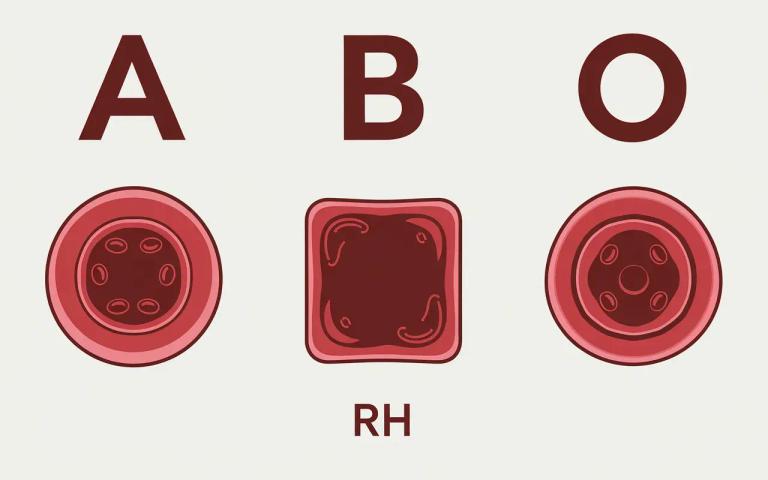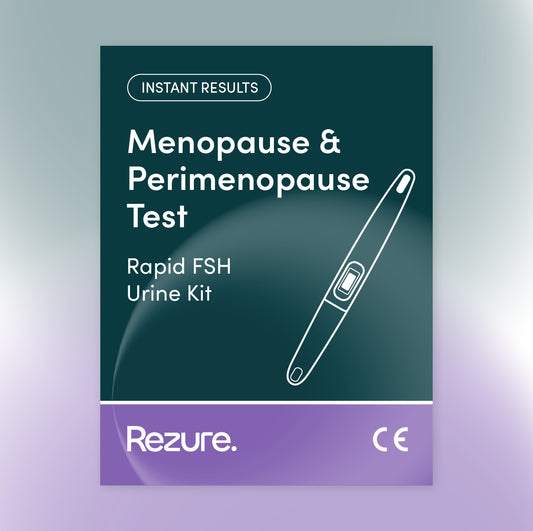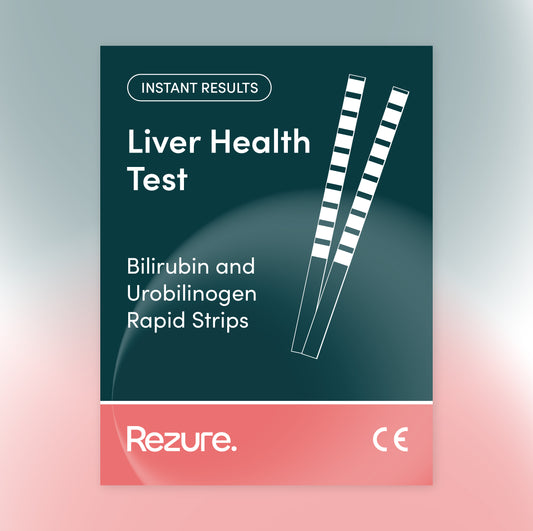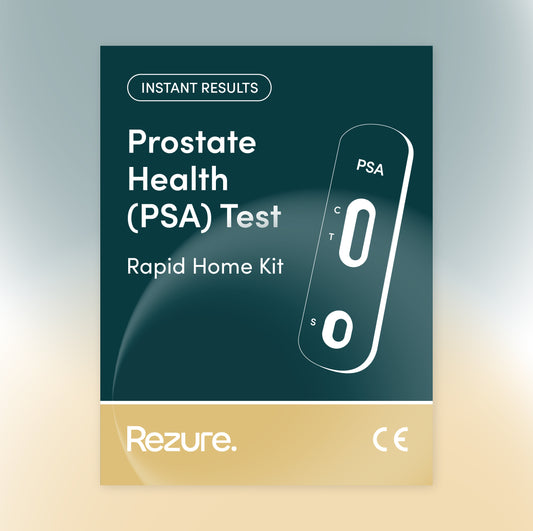Blood types explained: Understanding A, B, O, and the Rhesus factor

Understanding your blood type is more than just a medical detail—it’s a key part of your health. Whether it’s for a life-saving blood transfusion, pregnancy planning knowing your blood type can be incredibly useful.
In the UK, nearly half the population (48%) has type O blood, making it the most common, but do you know yours? A simple blood group test can give you the answer in minutes, helping you stay informed and take control of your health.
The ABO blood group system

Generally, blood types fall into one of four groups, each represented by either A, B, AB or O. The ABO system classifies blood into these four main types based on the presence or absence of antigens on the surface of red blood cells:
- Type A: Has A antigens on the red cells and anti-B antibodies in the plasma.
- Type B: Has B antigens on the red cells and anti-A antibodies in the plasma.
- Type AB: Has both A and B antigens on the red cells but no anti-A or anti-B antibodies in the plasma.
- Type O: Lacks A and B antigens on the red cells but has both anti-A and anti-B antibodies in the plasma.
The widespread occurrence makes O group blood in the UK is particularly valuable in medical settings. O-negative blood can be safely given to almost anyone in emergencies when a patient’s blood type is unknown.
The Rhesus (RhD) factor
As with most things in the body, though, blood typing isn't as simple as that. Beyond the ABO classification, blood is further categorised based on the presence (+) or absence (−) of the Rhesus factor, specifically the RhD antigen:
- RhD Positive (RhD+): This indicates the presence of the RhD antigen.
- RhD Negative (RhD−): This indicates the absence of the RhD antigen.
In the UK, approximately 85% of individuals are RhD positive. This means that the majority of the population carries the RhD antigen, which is crucial information for blood transfusions and pregnancy management.
Importance of knowing your blood type

That takes us neatly onto why knowing your own blood type can prove so useful. Being aware of your blood type is essential for several reasons:
- Emergency situations: In cases of severe injury or surgery requiring blood transfusion, knowing your blood type ensures you receive compatible blood, reducing the risk of adverse reactions.
- Pregnancy: For expectant mothers, understanding their RhD status is vital. An RhD-negative mother carrying an RhD-positive baby can develop antibodies against the baby's blood cells, leading to complications.
- Blood donation: Certain blood types are in higher demand. For instance, O negative blood, known as the universal donor, can be given to patients of any blood type, making it highly valuable in emergencies.
Blood type distribution in the UK
So we know most people in the UK have O-type blood, but how does the rest of the population break down, and why should we care? Understanding the distribution of blood types within the UK population provides insight into blood donation needs and transfusion practices:
- O Positive: 35%
- O Negative: 13%
- A Positive: 30%
- A Negative: 8%
- B Positive: 8%
- B Negative: 2%
- AB Positive: 2%
- AB Negative: 1%
This distribution highlights the relative rarity of certain blood types, emphasising the importance of regular donations from all groups to maintain a stable blood supply.
Health iImplications of blood types
While blood types are primarily important for transfusions and pregnancy, emerging research suggests potential links between blood types and certain health conditions:
- Iron deficiency: Some studies have explored correlations between blood types and iron absorption rates, though findings are not conclusive. Regular monitoring your iron levels is advisable, especially for individuals with dietary restrictions.
- Cholesterol levels: Research has indicated that individuals with certain blood types might have variations in cholesterol levels. For example, some studies suggest that people with blood type A may have higher cholesterol in their blood, potentially increasing the risk of heart disease.
It's important to note that while these associations may exist, they do not imply causation. Lifestyle factors, diet, and genetics play a more substantial role in these health conditions.
Determining your blood type
If you're unsure of your blood type, several methods can help you find out:
- Blood group test kits: At-home blood group testing kits allow you to determine your blood type conveniently. These kits typically involve a simple finger prick and provide results within minutes.
- Blood donation: Donating blood through organisations like the NHS Blood and Transplant service not only contributes to saving lives but also informs you of your blood type.
- Medical records: If you've had previous surgeries or blood tests, your blood type may be recorded in your medical history.
An extra benefit for looking after your health

Understanding your blood type is a proactive step toward taking control of your health. It equips you with essential information for medical situations and offers insights into potential health considerations related to your blood type. Regular health check-ups, a balanced diet, and an active lifestyle remain paramount for overall well-being.
While your blood type is a fixed characteristic, the knowledge of it empowers you to make informed health decisions and contribute meaningfully to community health through activities like blood donation.


